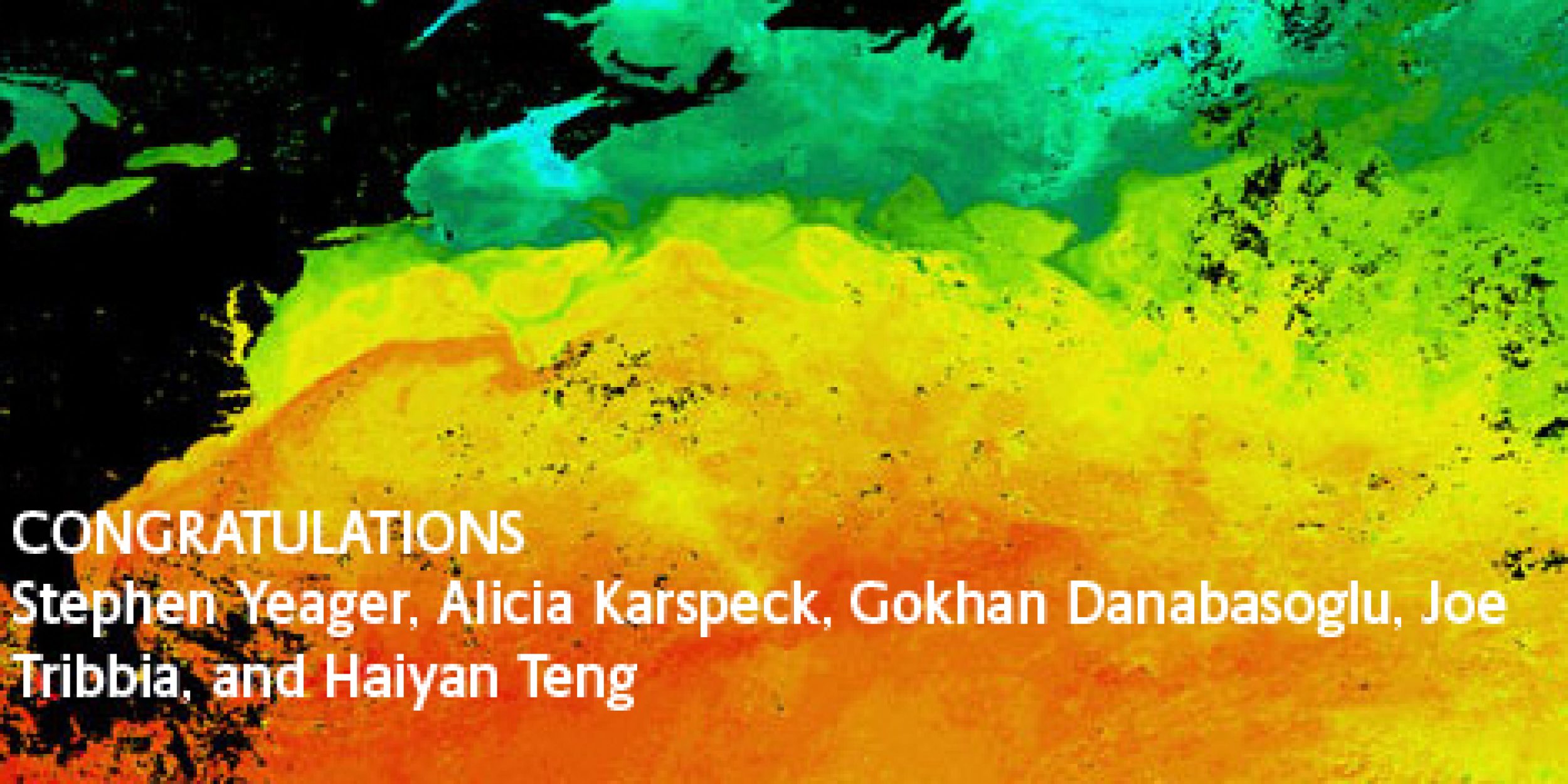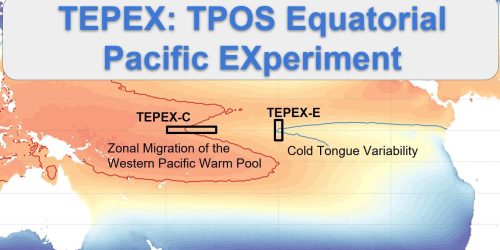Research published in the Journal of Climate, “A Decadal Prediction Case Study: Late Twentieth-Century North Atlantic Ocean Heat Content,” has received the 2014 UCAR Outstanding Publication Award. This work was supported by the Climate Program Office’s Earth Systems Science (ESS) program.


Predicting climate change in the near-term, over time horizons of up to a few decades into the future, is a relatively new and rapidly evolving field of climate science. Such “decadal prediction” research is aimed at bridging the gap between seasonal-to-interannual forecasting carried out by many operational weather services worldwide, and the centennial timescale future climate change projections that are the mainstays of the periodic IPCC assessments. Decadal time scales and regional spatial scales are particularly relevant to policy makers and other climate stakeholders. Skillful decadal predictions have the potential to confer tremendous benefits to society by providing advance warning of climate changes such as prolonged droughts, severe heat waves, and increased hurricane activity.
According to UCAR (the University Corporation for Atmospheric Research), the each of the five co-author’s–Stephen Yeager, Alicia Karspeck, Gokhan Danabasoglu, Joe Tribbia, and Haiyan Teng–brought unique and essential skills to the study and all five are included in the nomination. The paper distinguishes itself as an outstanding publication on the topic of decadal prediction in several respects:
- This study has provided impetus for continued and expanded decadal prediction efforts at NCAR, and influenced the latest Strategic Plans of NCAR, NESL and CGD that now highlight decadal climate prediction as a Grand Challenge objective (NCAR Strategic Plan: 2014-2019).
- It demonstrates that significant decadal prediction skill is possible today using community models developed by NCAR.
- It goes beyond simply documenting predictive skill by providing a clear explanation of the physical processes that give rise to that skill through a rigorous and innovative analysis of a relevant case study.
- Its immediate and lasting impact on the international research community is evidenced by a high and accelerating citation rate.
Decadal prediction research has only become feasible within the last 10 years or so, thanks to advances in Earth system state estimation and ensemble climate modeling. This endeavor builds on the knowledge and techniques of the weather and seasonal forecasting communities (e.g., the use of ensembles and bias correction) as well as the future climate projection communities (e.g., the use of greenhouse gas forcing scenarios) in order to address the unique challenges associated with making global forecasts with lead times of a decade or more.
“It is fair to say that this paper has secured the intellectual beachhead for further decadal prediction research at NCAR by showing that, at least in the Atlantic sector, predicting impactful future climate change years in advance is indeed a potentially realizable goal,” said the paper’s nomination page.
For more information, visit: www2.cgd.ucar.edu/2014-ucar-outstanding-publication-award
To view a copy of the award-winning paper, visit: http://dx.doi.org/10.










